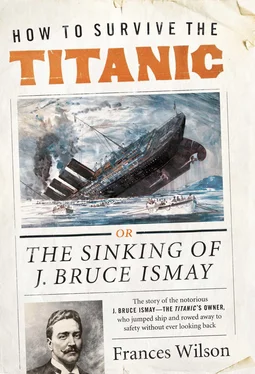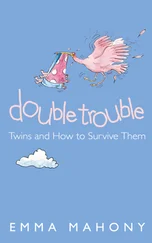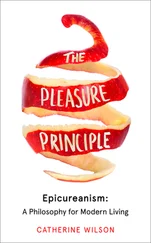On 16 April, the day after the news of the Titanic reached England, Conrad offered a piece on the subject to Nash’s Magazine. The editor turned his suggestion down and Conrad published a statement (now lost) in The London Budget on 20 April. Another article on the Titanic (also lost) appeared in The Literary Digest on 4 May. Needing to ‘talk a little’ about the wreck, ‘for my own comfort partly’, Conrad wrote to his agent on 22 April: ‘In order to throw it off my chest I ask you to get Harrison on the telephone and ask him if he cares to get an article from me on the subject. A personal sort of pronouncement, thoughts, reminiscences and reflections inspired by the event with a suggestion or two.’ Austin Harrison, the Harrovian editor of the English Review, was considering serialising Chance, which had, since January, been appearing in instalments in the New York Herald. Harrison turned down Chance, and accepted instead not one, but two personal pronouncements by Conrad.
The first of Conrad’s articles, ‘Some Reflections on the Loss of the Titanic, appeared in May 1912. 8He noted the ‘good press’ the wreck had enjoyed, and condemned the ‘provincial display of authority’ exercised by the ‘august’ Senators Smith and Newlands, the ‘grimly comic touch’ they brought to the affair by ‘rushing to New York and beginning to bully and badger the luckless “Yamsi” — on the very quay-side so to speak… What are they after? We know what happened. The ship scraped her side against a piece of ice, and sank after floating for two hours and a half, taking a lot of people down with her. What more can they find out from the unfair badgering of the unhappy “Yamsi”, or the ruffian abuse of the same?’ The codename ‘Yamsi’, Conrad explains, is ‘symbolic’, used here to represent not Ismay but commerce itself. While Conrad has no high regard for shipping magnates, he must protest against the ‘Bumble-like proceedings’ of the Senate inquiry. What motivated such a tasteless rush to abuse Ismay, ‘a man no more guilty than others in this matter’? What motivated the Senate to set up a court ‘before the poor wretches escaped from the jaws of death had time to draw breath’, and before the accusers themselves had time to learn the most basic sea terms? The Senators did not even understand the language they were required to speak. ‘Such a simple expression as that one of the lookout men was stationed in the “eyes of the ship” was too much for them.’ Conrad could not see why there was an inquiry in New York at all, the Titanic being a British-built ship which sank in high seas, or why Ismay should answer the questions of ‘any king, emperor, autocrat, or senator of any foreign power’.
Conrad did not restrict his scorn to the Americans. He also condemned the British Board of Trade, asleep on the job, which ‘took its dear old bald head’ out from under its wing to declare the Titanic ‘unsinkable’ before putting it back again, ‘in the hope of not being disturbed for another ten years’. He condemned the ostentation of the Titanic herself, ‘boomed’ by advertising, ridiculous in her Egyptian decor — or was it Louis Quinze? — with her ‘gorgeously fitted (but in chaste style) smoking room’, her swimming pool and ‘delightful French cafe’, all of which gave the passengers a ‘sense of false security’. What is all this luxury for? Were there no ships, most of us would happily put to sea in a bucket. The White Star Line are dealers in illusion posing as ‘benefactors of mankind’ magnanimously ‘engaging in some lofty and amazing enterprise’. And what kind of discipline is operating on a ship in which passengers think that entering a lifeboat is ‘an optional matter’? What has happened to the moral atmosphere of sea life, in which certain conditions and rules prevail? ‘The order to leave the ship should be an order of the sternest character, to be obeyed unquestioningly… A commander should be able to hold his ship in the hollow of his hand.’ Refusing to abandon ship when ordered to do so is evidence of social breakdown. The Titanic was not commanded, manned and equipped as a ship at all, she was a ‘marine Ritz’, a ‘sort of hotel syndicate composed of the Chief Engineer, the Purser, and the Captain’. A 46,000-ton pleasure palace made of thin strips of steel was sent adrift to meet all the usual dangers of life on the waves, and there is uproar and ‘surprised consternation’ when she sinks.
His second article, ‘Certain Aspects of the Admirable Inquiry into the Loss of the Titanic , which appeared in the English Review in July 1912, was written in reply to a letter he received from John Quinn. 9‘The inquiry was a God-send,’ Quinn had written to Conrad from New York, ‘in that it lifted the cloud of mystery that shrouded the whole thing and was really a safety valve. It was a loosening by proxy of the pent-up horror that the loss had caused everywhere and by the time the inquiry was over people were more or less satisfied that they had got to the bottom of things… As a whole the American press behaved admirably both in news and editorial comments.’
The US Senate inquiry a God-send? A safety valve? It reached the bottom of things? ‘The Senators of the Commission’, Conrad responded through the pages of the English Review, ‘had absolutely no knowledge and no practice to guide them in the conduct of such an investigation; and this fact gave an air of unreality to their zealous exertions.’ And anyway, what is this obsession with bigness as a sign of progress? ‘If it were, elephantiasis which causes a man’s legs to become as large as tree trunks, would be a sort of progress, whereas it is nothing but a very ugly disease.’ Bigness should not be confused with greatness; bigness has no intrinsic moral value, it is no more than ‘mere exaggeration’. As for the language of heroism employed by the halfpenny press, ‘there is nothing more heroic in being drowned very much against your will, off a holed, helpless big tank in which you bought your passage than in dying of colic caused by the imperfect salmon in the tin you bought from your grocer’. It would have been finer, Conrad suggests, ‘if the band on the Titanic had been quietly saved, instead of being drowned while playing — whatever tune they were playing, the poor devils’. But Conrad is not, he insists, ‘attacking’ the shipowners themselves: ‘I care neither more nor less for Lines, Companies, Combines and generally for Trade arrayed in purple and fine linen than the Trade cares for me… I am attacking foolish arrogance… I have been expecting from one or other of them all bearing the generic name of Yamsi, something, a sign of some sort, some sincere utterance, in the course of this Admirable Inquiry, of manly, of genuine compunction. In vain. All trade talk.’
Gone is Marlow’s sinuous sidetracking, his serene suspension of moral judgement. It is Conrad speaking in these essays and his irony is out in full force. His tone is one of parental wariness, this is the ‘I told you so’ of the jaded and fastidious when the inevitable occurs. The Titanic was never a ship; she was a fashion. The focus on speed, on advertising, on profit, on the values of ‘progressive’ modernity which dominate the miserable affair offend Conrad’s belief in the nobility of the sea, in the rigour and efficiency of those who try to combat it and the honour and decency of the men who devote themselves to its traditions. The Titanic crew died, he believed, for commerce and it is his ‘brother’ seamen about whom Conrad is thinking when he writes about the disaster; their duty had at one time been his duty, their feelings were his feelings. As for the men who died ‘compartmented’ in the bowels of the ship, ‘nothing can approach the horror of that fate except being buried alive in a cave, or in a mine, or in your family vault’. This ‘horror’ is as close as Conrad gets to commenting on the human side of the tragedy; he had no ‘personal… thoughts, reminiscences and reflections’ to make about the man at the tiller or the boys in the crow’s nest, about the responsibility of the Captain, or the officers, or the role on the ship of the owner. He said nothing about the individual behaviour of anyone on the Titanic, and made it clear that he was using ‘Yamsi’ to refer to the corporation rather than to the man whose code-name it was. While the rest of the country celebrated individual acts of heroism and debated displays of cowardice, Conrad considered the Titanic to be no more than the tale of a tub. His essays are about an empty ship.
Читать дальше












